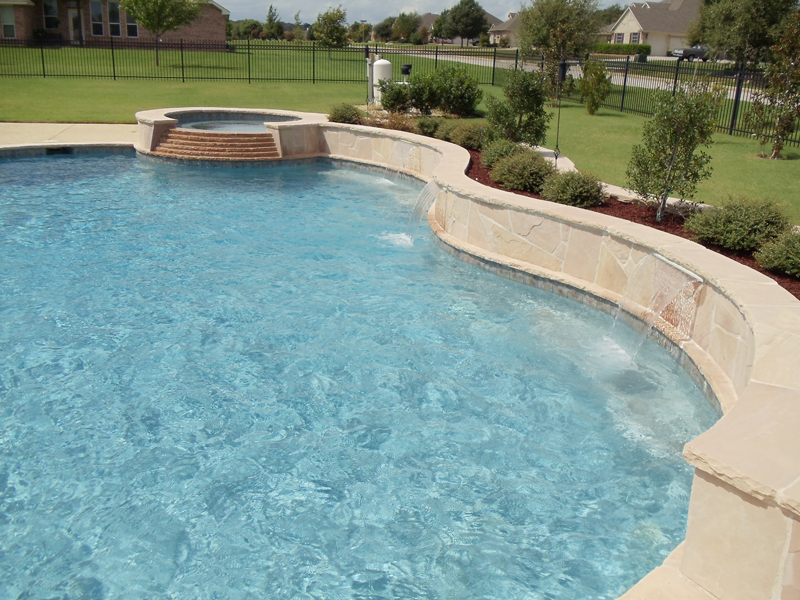Heating your swimming pool water will help you extend the swim season and get more use out of the investment you’ve put into your swimming pool. Should you get a swimming pool heat pump? This is a question the swimming pool contractors from Seahorse Pools & Spas in Fort Worth, Texas answer all the time.
There are several ways to heat swimming pool water and they include: a gas heater, solar power or a heat pump. The way in which you heat your pool water is a personal choice, but it may also be- and probably should be- a budget consideration. Gas heaters heat more quickly, but they may be more expensive to operate. Heat pumps are an ideal way to heat and are economical, but they do not heat quickly.
Should you get a swimming pool heat pump?
The way a heat pump works is that it runs on electricity. It works by taking the ambient heat from the air around it and heating it in order to heat the pool water. A heat pump is efficient in the fact that for every unit of power the heat pump requires to operate, it produces more than a unit of heat. A gas heater, by comparison is rated 84% efficient because it wastes fuel in the production of the heat.
A gas heater costs less to buy than a pool heat pump but a pool heat pump is more energy efficient and can save you money in the long run. A gas heater, though, will cost almost twice as much to operate than a heat pump will — over the course of a year.
Heat pumps do not work quickly
A heat pump may be efficient, but they are not quick. If you want to heat the pool water in time for a party — you need to plan and run it well in advance because it takes much, much longer to heat the water. Using the pool on the spur of the moment is not going to happen if you’re using a heat pump – sure a gas heater won’t be immediate either, but it will be quicker to heat the water.
Heat pumps work best when the temperatures do not dip lower than 45 degrees. If you’re living in the frigid northeast where the temperatures drop below zero degrees, your pool heat pump will simply not be up to the task because there is no warm ambient air with which to work.
Talk with us and let’s discuss ideal ways to help keep your pool water warm and swimmable for more weeks or months of the year.

